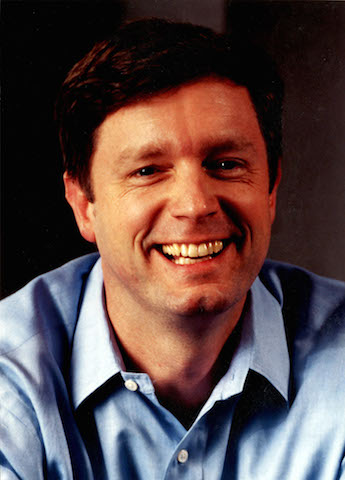Substitutable Medical Applications & Reusable Technologies (SMART)
See the following -
Partners HealthCare and Persistent Systems to Team on New Industrywide Digital Platform for Clinical Care
 Persistent Systems and Partners HealthCare, founded by Brigham and Women’s Hospital and Massachusetts General Hospital, announced today a strategic collaboration to develop a new industry-wide open-source platform with the goal of bringing digital transformation to clinical care. Persistent will help the digital transformation of clinical care at Partners and, together with Partners, develop an open-source platform to lower the barriers for knowledge exchange across health care providers and enable a new generation of decision support apps in the clinical environment...
Persistent Systems and Partners HealthCare, founded by Brigham and Women’s Hospital and Massachusetts General Hospital, announced today a strategic collaboration to develop a new industry-wide open-source platform with the goal of bringing digital transformation to clinical care. Persistent will help the digital transformation of clinical care at Partners and, together with Partners, develop an open-source platform to lower the barriers for knowledge exchange across health care providers and enable a new generation of decision support apps in the clinical environment...
- Login to post comments
RWJF Report: Time to Transition to a Post-HITECH World?
 Context and perspective matter. And it’s often both context and perspective that are lacking from the daily snapshots we get of health information technology, meaningful use, interoperability and the progress we are either making or not making, depending on your perspective. So I welcome a report like the one the Robert Wood Johnson Foundation (RWJF) released last month on the state of health information technology circa 2015 in these United States. Subtitled “Transition to a Post-HITECH World,” the detailed report, created in collaboration with the University of Michigan School of Communication, the Harvard School of Public Health and Mathematica Policy Research, takes a 10,000-feet view of the ongoing digitalization of healthcare and what the priorities are as we approach the terminus of HITECH.
Context and perspective matter. And it’s often both context and perspective that are lacking from the daily snapshots we get of health information technology, meaningful use, interoperability and the progress we are either making or not making, depending on your perspective. So I welcome a report like the one the Robert Wood Johnson Foundation (RWJF) released last month on the state of health information technology circa 2015 in these United States. Subtitled “Transition to a Post-HITECH World,” the detailed report, created in collaboration with the University of Michigan School of Communication, the Harvard School of Public Health and Mathematica Policy Research, takes a 10,000-feet view of the ongoing digitalization of healthcare and what the priorities are as we approach the terminus of HITECH.
- Login to post comments
The EHR Debacle: Has Organized Medicine Failed Us?
 By now, it should be no secret that physicians in the United States, although largely receptive to the idea of electronic health records (EHRs), are widely dissatisfied with the current state of the art, and with the way that EHR adoption is being implemented.[1] Indeed, Congress[2] has shown continuing – but sometimes seemingly perfunctory – interest in the concerns of physicians and other health care providers, and I am at this point pessimistic about seeing any results of its efforts in the near future unless a more fundamental change is made in our approach. As Einstein noted, “We cannot solve our problems with the same thinking that created them.”
By now, it should be no secret that physicians in the United States, although largely receptive to the idea of electronic health records (EHRs), are widely dissatisfied with the current state of the art, and with the way that EHR adoption is being implemented.[1] Indeed, Congress[2] has shown continuing – but sometimes seemingly perfunctory – interest in the concerns of physicians and other health care providers, and I am at this point pessimistic about seeing any results of its efforts in the near future unless a more fundamental change is made in our approach. As Einstein noted, “We cannot solve our problems with the same thinking that created them.”
- Login to post comments